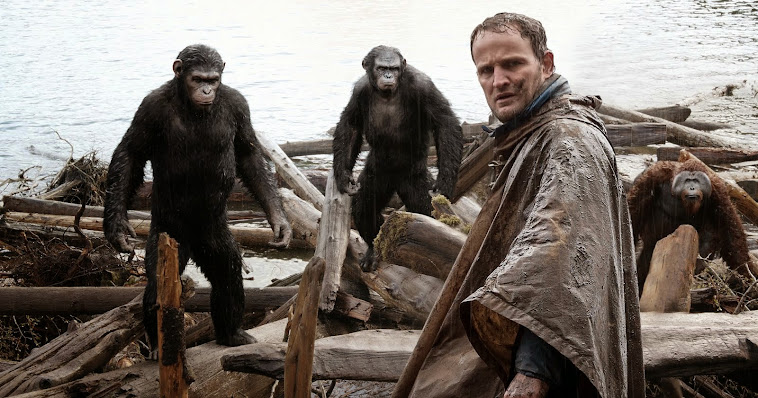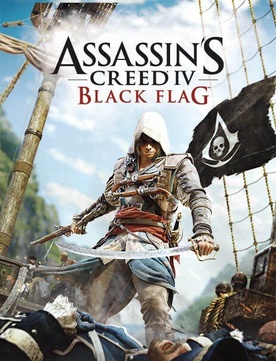 So as to cover two days' worth of Advent Calendar windows, today we're bringing you not one but two definitive reviews of a pair of hot recent entertainment releases...
So as to cover two days' worth of Advent Calendar windows, today we're bringing you not one but two definitive reviews of a pair of hot recent entertainment releases...SAVING MR BANKS REVIEW
For Walt Disney, it was always all about the little touches. In a similar vein, his company's touching biopic Saving Mr Banks revels in its subtleties, in those little touches which heighten its nostalgic tendencies to the extent of heart-warming youthful recollection for even the most seasoned viewer. From the outset, that the vivid, modern Disney opening logo sequence is replaced by an understated static blue card with a rendition of Sleeping Beauty's iconic castle more akin to that which opened Toy Story than that which preceded Wreck-It Ralph.
Such glowing nostalgia isn't the only strength of the piece, however- instead, it's the screenplay's constant subversion of its viewers' perceptions of child-friendly tropes and the Mary Poppins narrative itself which holds the greatest impact upon the audience as the biographical tale of P.L. Travers progresses. In spite of the film being a Disney production pure and proud, screenplay artists Kelly Marcel and Sue Smith don't shy away from portraying the company in a satirical light, through Emma Thompson's Travers suitably emphasising the personal and professional conflicts which emerged in Walt's adaptation of her original novel.
This is undoubtedly Thompson's show- Travers seems to be her perfect role, her performance here worthy of accolades beyond any of the superficial titles bestowed at the Oscars, Cannes or elsewhere. Tom Hanks is naturally wonderous as ever in the role of Walt himself, while Paul Giamatti has a brief yet fulfilled opportunity to bring extra familial and thematic gravitas to a piece of cinema which could already be asserted as stirring even before his charismatic cab driver first makes an appearance. Compared to most other big-screen works, the central cast is notably reduced in size; however, Thompson, Hanks and Giamatti all create a profoundly human character drama which is easily superior to most of its current competitors.
As is the case with virtually every instalment in the biopic genre, Saving Mr Banks is no bonafida masterpiece, its thematically-imbued symbolism and its pathos-infused subversions of our expectations often so blatant that they end up at odds with those intricacies which define its enduring charm and impressive 'magical' moments. Even if Travers' meetings with Disney execs are based on real-world tape recordings of their original discussions, the clear exaggerated melodrama of the narrative on occasion encourage the viewer to take what transpires on-screen at a surface level with relation to the context of its inspiration, experiencing it all while holding a pinch of salt (or rather a spoonful of sugar here!). Neither the direction nor the narrative structure will stun, but the flair with which Thompson, Hanks and Giamatti bring the screenplay to life is a near-unparalleled triumph in understated character drama.
4/5
ASSASSIN'S CREED IV: BLACK FLAG REVIEW
Assassin's Creed III was, with hindsight, a title evidently burdened with the linear trappings of its franchise more than any of the series' annual instalments before it. With Black Flag, then, Ubisoft Montreal attempt to reclaim the freedom and open-world discovery of the first two games, and the final product comes remarkably close to matching the vast potential displayed in Assassin's Creed II and Brotherhood. As precedents for future outings go, few stronger omens come to mind than this one, even if AC IV isn't quite the undisputed Game of the Year contender that many critics would have you believe.
To be clear, though, Black Flag's superiority over ACIII and Revelations derives not from its status as an Assassin's Creed title but instead due to its inhabiting the rarely-touched piratical genre. Sid Meir's Pirates The Legend of Zelda: The Wind Waker and LEGO Pirates of the Caribbean have showcased in the past what might become of the genre in the right hands, and yet only now has a developer both attained that same level of grand quality and surpassed it by offering fully-fledged open-world exploration. When the Montreal team accept their latest Creed's status as an open seas experience of swashbuckling and treasure-hunting (and honestly, what an experience), Assassin's Creed IV becomes the video game adventure that every fan had aspired for from previous entries.
That said, such a realization does not appear to have occurred frequently enough within Ubisoft's scripting and narrative concept teams, since the central Assassin's Creed plot elements and arcs rid the core campaign's storyline of its flexibility and innovation during the final act. The refined combat and stealth gameplay aspects are of course just as impressive as they were when Ezio's first Renaissance escapades debuted on Xbox 360 and PlayStation 3, yet in recognising the ongoing shortcomings of the series, we must admit that the engine itself has scarcely changed since 2009's AC II, and four years on, "if it ain't broke, don't fix it" doesn't quite cut it anymore. Neither of these detrimental elements bring the overall gameplay or narrative experiences to their knees, but should Ubisoft intend to best Rockstar's Grand Theft Auto V or Irrational's BioShock Infinite, then further technological and narrative innovation advancements would certainly be a start.
If the increasingly convoluted present-day sequences featuring the irksome series protagonist Desmond Miles became of greatest detriment last year, then at least Ubi Montreal have seen fit to reverse the situation on the playing field profoundly here. Black Flag's satirical voyages into Abstergo's entertainment offices are in fact some of the game's most daring and downright hilarious sequences in the narrative, the latter adjective not having applied to the Creed franchise for quite some time now. Losing Miles in favour of a nameless, first-person hero (who's you, according to the marketing team) is just the shake-up that the complex saga needed, and the alteration enables some of the first genuinely thrilling plot developments in quite some time during the final modern missions. Should the team continue to pursue this trail of present-day storytelling in 2014 and beyond, then chances are that Black Flag could be the start of a bright new future.
Where does the latest Assassin's Creed leave us, then? First and most importantly, Black Flag is a mercifully successful mission statement of franchise rejuvenation from Ubisoft Montreal, a reclamation of the freedom and open-world discovery experienced in Altair and Ezio's première outings. Like most of its series predecessors, it can't lay claim to perfection, still burdened by old shortcomings which need to be addressed before Rockstar have anything to worry about. On the basis of Creed's fifth consecutive annual instalment, the studio's equivalent of Marvel's Phase Two has begun, and the franchise has rarely performed with such accomplished vigour as it does now.
9/10


No comments:
Post a Comment